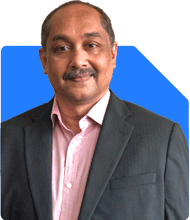Ambareesh Baliga | Answer |Ask -Follow
Stock Market Expert - Answered on Feb 05, 2023

Sectors to benefit immediately 2023 onwards.
You may like to see similar questions and answers below
Ambareesh Baliga | Answer |Ask -Follow
Stock Market Expert - Answered on Feb 02, 2023
Ambareesh Baliga | Answer |Ask -Follow
Stock Market Expert - Answered on Feb 02, 2023
Samraat Jadhav |2302 Answers |Ask -Follow
Stock Market Expert - Answered on Jul 24, 2024
Samraat Jadhav |2302 Answers |Ask -Follow
Stock Market Expert - Answered on Dec 19, 2024
Dr Ganesh Natarajan |75 Answers |Ask -Follow
Career Expert - Answered on May 31, 2025
Dr Ganesh Natarajan |75 Answers |Ask -Follow
Career Expert - Answered on May 31, 2025
Nayagam P P |5575 Answers |Ask -Follow
Career Counsellor - Answered on May 31, 2025
Dr Ganesh Natarajan |75 Answers |Ask -Follow
Career Expert - Answered on May 31, 2025
Nayagam P P |5575 Answers |Ask -Follow
Career Counsellor - Answered on May 31, 2025
Dr Ganesh Natarajan |75 Answers |Ask -Follow
Career Expert - Answered on May 31, 2025
Dr Ganesh Natarajan |75 Answers |Ask -Follow
Career Expert - Answered on May 31, 2025
Nayagam P P |5575 Answers |Ask -Follow
Career Counsellor - Answered on May 31, 2025
Radheshyam Zanwar |2599 Answers |Ask -Follow
MHT-CET, IIT-JEE, NEET-UG Expert - Answered on May 31, 2025
Radheshyam Zanwar |2599 Answers |Ask -Follow
MHT-CET, IIT-JEE, NEET-UG Expert - Answered on May 31, 2025





















